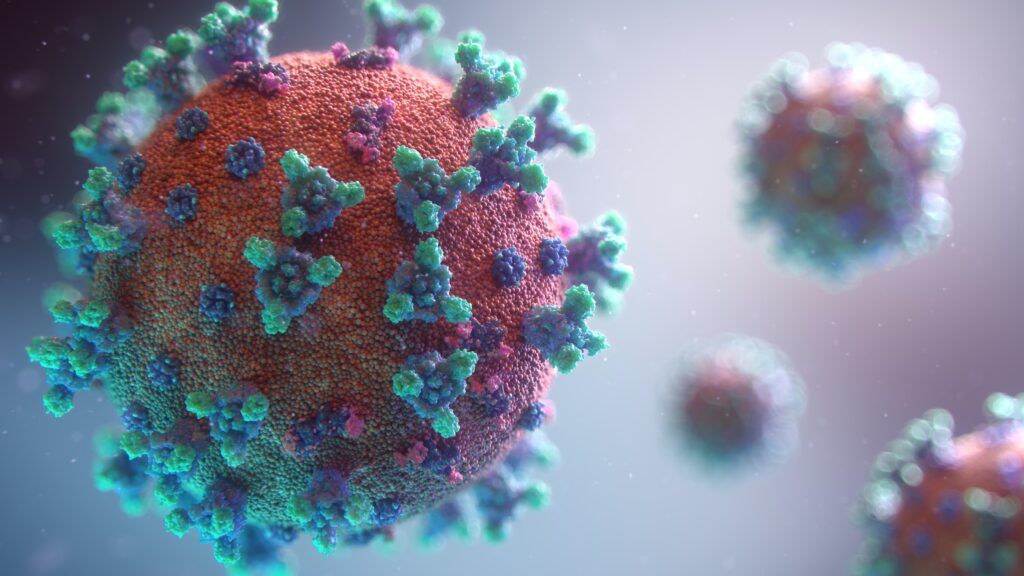Nearly two years ago, COVID-19 was deemed a global pandemic by the World Health Organization. Since then, multiple variants have surfaced, threatening any chance of a return to normal, despite efforts to counter the virus. With the rise of the most recent variant, named omicron, new fears regarding yet another lockdown are spreading throughout Washington state, and the rest of the country.
According to the Center for Disease Control and Prevention, omicron is likely to spread faster than the original SARS-CoV-2 virus. However, it is unknown whether omicron spreads faster than the delta variant. There is still minimal information about the variant’s severity, except that it has the potential to infect even fully vaccinated individuals who can then transmit the virus to others.
The first case of the omicron variant was discovered in South Africa on Nov. 24, and the mutation has spread across the U.S. The cause of the omicron outbreak in Washington state has been traced back to a high school wrestling tournament, as stated by the Washington State Department of Health.
Dr. Steven Krager, deputy health officer at the Clark County Public Health department, said based on the data they have gathered, the omicron variant is at least 30% more contagious than the delta variant. As reported by NPR, the increase in transmission could be due to its many mutations in the spike protein. This allows the virus to affect and penetrate human cells more ef- efficiently, no matter one’s vaccination status or previous infection.
“If you’ve been infected with a type of COVID-19 in the past, whether that’s delta or the original strain, you seem not to have protection from omicron,” Krager said. “We were already seeing a pretty rapid spread in Washington. Not a lot of confirmed cases, but a lot of probable causes.”
Dave Stephenson, the WSU Vancouver campus COVID-19 coordinator, said while WSU Vancouver is not planning to implement any new procedures the university encourages students to get the booster shot and continue following state protocols.
“[The CDC] strongly recommends vaccine boosters now that they are approved and available, saying that the vaccine has been demonstrated to protect against severe illness, hospitalization and death for most people contracting COVID-19,” Stephenson said.
Dr. Scott Lindquist, a Washington state epidemiologist, said the CDC and the state have not given any updated guidance regarding the new variant. Additionally, he said that winter break has disrupted the transmission of the virus on university campuses by sending students home from school, thus slowing the spread.
“It becomes [the responsibility] of us as individuals, going to family events or parties, to help control the spread. Those recommendations are not anything new; get vaccinated, get your booster, wear a mask in an indoor space, or test before the event,” Lindquist said.
In response to the spread, researchers at the University of Washington are analyzing test results from the re- cent omicron spike, searching for positive tests to find more answers regarding the dangers of the new variant. In reference to the New York Times, the University of Washington found 13% of 217 positive COVID-19 tests traced back to the omicron variant, which increased from previous data recorded just the day before.
When estimating how many cases could increase on account of the omicron variant, Trevor Bedford, a computational biologist at Fred Hutchinson Cancer Research Center, predicted peak infections to triple due to the omicron variant.
“If we make a very simple 10-day projection of this rate of growth, we should expect approximately 2,100 daily omicron cases in King County on December 22, 2021. This is approximately 3.5 times the Delta-peak in King County in August,” Bedford said.
In the following days, King County increased from a seven-day average of 710 cases on Dec. 22 to a case average of 2,137 on Jan. 1, according to reports from The New York Times.
As for what other universities are doing to reduce the surge of omicron, Western Washington University has canceled the first week of classes after winter break because of the variant’s potential threat. The decision was made to prioritize testing and symptom monitoring upon the return to campus, thus, time will tell if other universities in the state of Washington follow suit.
There are still many unknown factors surrounding the omicron variant. However, one thing public health officials do know is that Washing- ton residents need to continue following CDC guidelines, and urge others eligible to get vaccinated, or receive the booster. All adults over the age of 18 can get vaccinated and receive a booster shot for free, as long as they have been given the first two rounds of either the Pfizer or Moderna vaccines.
Information surrounding the variant is advancing every day, and WSU will continue to track active cases weekly across all campuses. For more information on WSU’s response to the COVID-19 pandemic, readers can check out https://wsu.edu/covid-19/ for more information.

Bethanie is a senior studying environmental and ecosystem science at WSU Vancouver.
